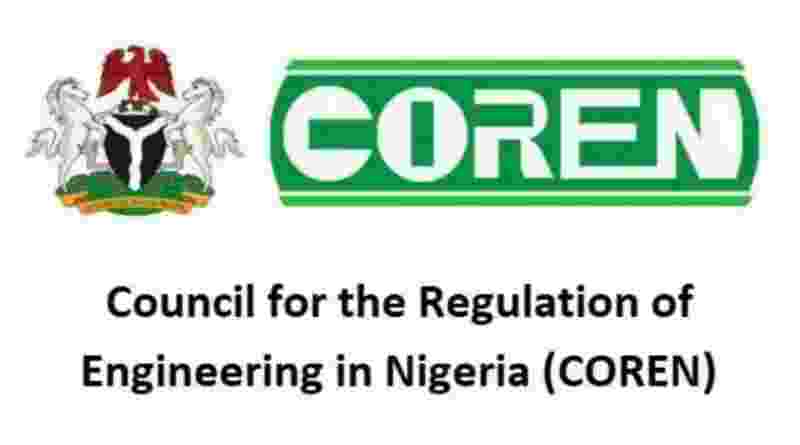The Council for the Regulation of Engineering in Nigeria (COREN) has identified a significant legislative gap in its enabling Act as a major obstacle to prosecuting the owners of collapsed buildings across the country.
This issue has come to the forefront as COREN grapples with the increasing frequency of building collapses and the challenges in holding those responsible accountable.
Engr. Dominic Akuboh, a member of the COREN Council Committee on Engineering Regulation, Monitoring, and Enforcement, revealed in an exclusive interview that even when investigations clearly implicate building owners, COREN lacks the legal authority to take action against them. “There is no clause in the COREN enabling Act that allows us to carry out any action on building owners found culpable,” Akuboh explained.

To address this limitation, COREN has partnered with the Independent Corrupt Practices Commission (ICPC) in some instances, attempting to navigate the legal constraints.
Last month, COREN expressed concern over the persistent issue of building collapses in Nigeria, with a lack of capacity to investigate and prosecute the culprits being a central issue.
READ ALSO: Works Ministry Promises Enhanced Collaboration with COREN for Engineering Practice Advancement
Akuboh stressed the need for clear legislation to bridge this gap, ensuring that all parties responsible for building collapses can be prosecuted without legal obstacles. While COREN is capable of investigating building collapses and infrastructural failures, additional technical investigations are often needed, particularly when evidence is compromised during rescue operations.
He emphasized that saving lives remains the priority when building collapses occur, which can sometimes hinder the preservation of crucial evidence.
Akuboh further clarified that many investigations into building collapses do not directly implicate engineers but instead highlight issues such as quackery, the use of substandard materials, and economic pressures that lead to corner-cutting corruption, and unprofessional practices.
“The bulk of the issue is quackery, the use of substandard materials, and then the economy, with people trying to cut corners. These are the major underlying challenges,” Akuboh stated. He also pointed out that instances of professional negligence, such as engineers allowing their seals to fall into the wrong hands, could result in indirect indictments.
To tackle the issue of infrastructure failure, COREN has urged the Minister of the Federal Capital Territory (FCT) to establish an FCT Technical Committee, similar to the existing State Technical Committees. According to COREN President, Engr. Sadiq Abubakar, this committee will enhance the proactive monitoring and enforcement of engineering regulations at the national level, helping to prevent infrastructure failures.
With at least 22 reported cases of building collapses in Nigeria in 2024 alone as of July 14, and over 354 deaths from 91 incidents in Lagos since 2012, COREN is actively working to build the capacity of professionals to address this growing menace effectively.



